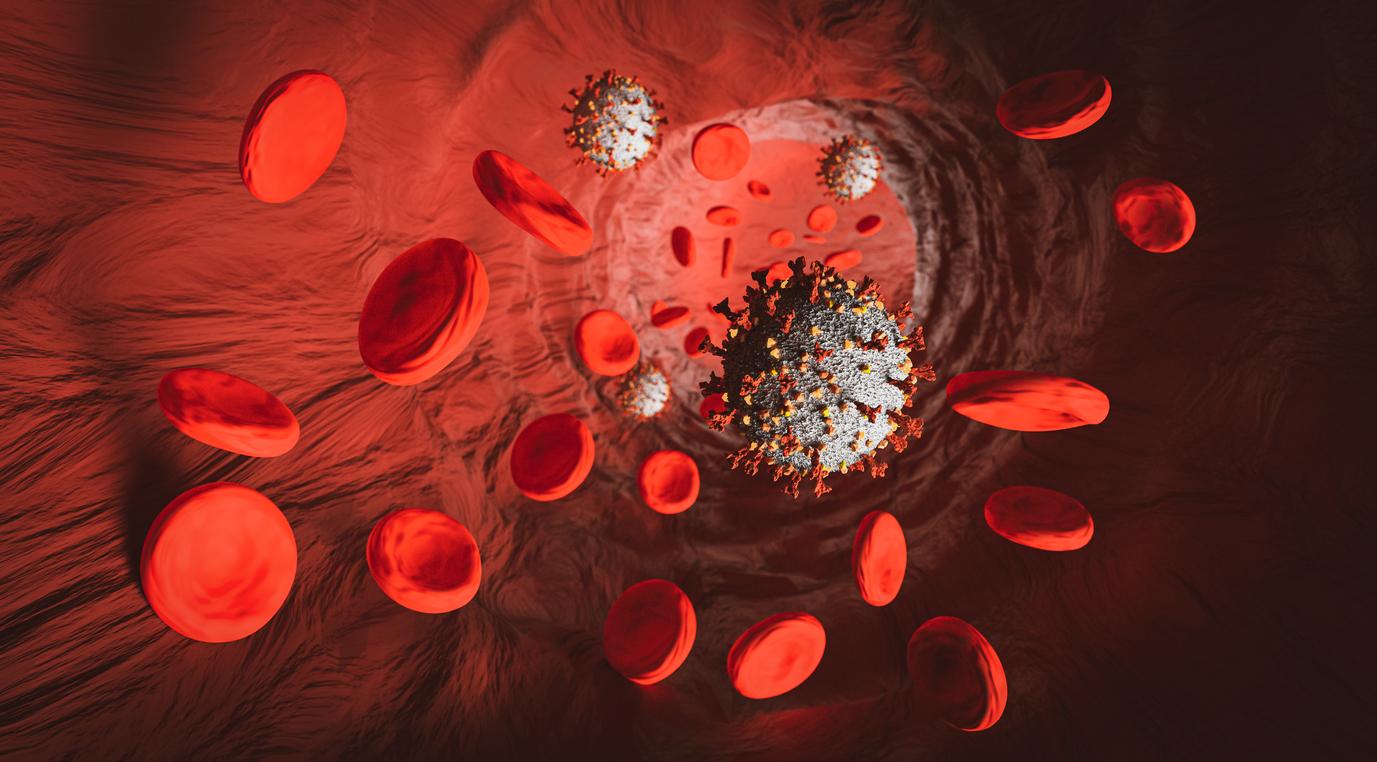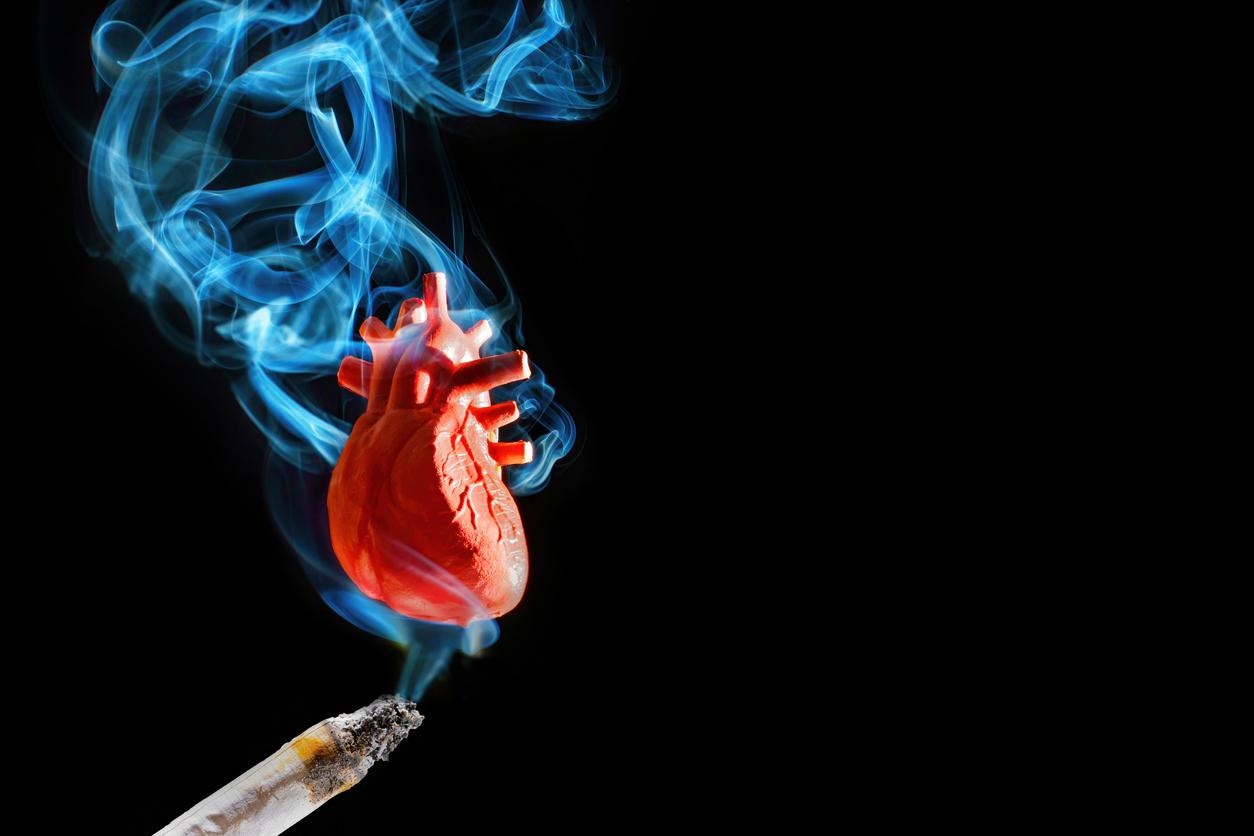A new study reveals how Covid-19 directly infects the arteries of the heart, causing atherosclerotic plaque to become inflamed and thus increasing cardiovascular risk.

- The study is based on biological data from elderly patients with atherosclerosis who died from Covid-19 at the start of the pandemic, between May 2020 and May 2021, in New York.
- Atherosclerosis is characterized by the deposition of a plaque of fatty deposits on the walls of the arteries. Ultimately, these plaques can cause damage to the arterial wall, lead to obstruction of the vessel, or even rupture, leading to dramatic consequences.
- The study highlights that SARS-CoV-2 “directly infects the coronary vessels, inducing plaque inflammation which could trigger acute cardiovascular complications and increase long-term cardiovascular risk”.
It has long been known that coronavirus patients have an increased risk of cardiovascular disorders (heart attack, stroke, etc.) up to a year after infection, but the question of why has never been resolved for good.
A new study, published in the journal Nature Cardiovascular Researchseems to provide some answers by highlighting how SARS-CoV-2 infects the coronary arteries and, in doing so, causes inflammation of atherosclerotic plaque, this accumulation of fatty deposits in the arteries, thus increasing cardiovascular risks.
Covid-19 directly infects the arteries of the heart
The researchers behind the discovery relied on biological data from elderly patients with atherosclerosis who died from Covid-19 at the start of the pandemic, between May 2020 and May 2021, in New York (United States). United). By analyzing the tissues of their coronary arteries and their atherosclerotic plaques, they confirmed the presence of the virus in these tissues. They then took cells from coronary arteries and plaques in healthy patients, before infecting them in the laboratory – which helped demonstrate the ability of Covid-19 to infect these cells and tissues.
The scientific team then compared infection rates and discovered that the virus infected plaque cells (called macrophages and foam cells, which cause the atherosclerosis process) at a “more sustained rhythm” than other arterial cells. In other words, these cells are “the most susceptible to infection and unable to easily eliminate the virus, note The Doctor’s Dailywho popularized the study. Which suggests that these cells could be a reservoir of SARS-CoV-2 in atherosclerotic plaque, and that their accumulation could play a role in the severity and the persistence of symptoms.
In terms of inflammation, researchers were able to show that Covid-19 induces “robust inflammatory response [dans les cellules propres à l’athérosclérose] with secretion of cytokines known to trigger cardiovascular events”.
Increased risk of cardiovascular disorders in the long term
“We knew this for influenza, but this is the first time that this has been demonstrated with SARS-CoV-2,” commented Dr. Riadh Caid-Essebsi, of the American Hospital of Paris, in a LinkedIn post. The doctor believes that this work could open “exciting therapeutic perspectives on the preventive level”particularly in terms of “monitoring symptoms” after Covid infection and “optimal management of cardiovascular risk factors”.
The study, which was limited to cases occurring at the start of the pandemic and to certain viral strains of Covid-19, cannot “be extrapolated to younger, healthy individuals., write the authors. That said, it highlights that SARS-CoV-2 “directly infects coronary vessels, inducing plaque inflammation that could trigger acute cardiovascular complications and increase long-term cardiovascular risk.”


















